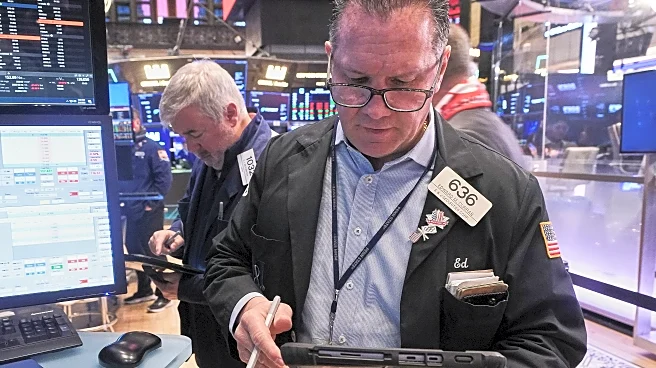What's Happening?
Jeffrey Hawkins, Bain Capital's deputy managing partner for credit and special situations, has stated that the global private credit market does not face systemic risks, despite concerns over weak lending standards following the collapses of U.S. auto
parts supplier First Brands and car dealership Tricolor. Hawkins emphasized that the market is 'frothy' but not fundamentally flawed. He noted that the influx of new capital could lead to quicker deployment and less diligence, potentially resulting in lower spreads. Bain Capital is particularly optimistic about growth opportunities in Asia, where traditional bank lending is less prevalent.
Why It's Important?
The remarks by Hawkins highlight the ongoing debate about the stability of the private credit market, which has grown significantly as companies seek alternatives to traditional bank loans. The focus on Asia reflects a strategic shift, as the region offers substantial growth potential compared to the U.S. and Europe. This could influence investment flows and economic development in Asia, impacting industries reliant on credit. The U.S. Federal Reserve's rate cuts have raised concerns about narrowing returns, making Asia's growth prospects even more attractive to investors.
What's Next?
Bain Capital is actively raising funds for direct lending and special situations in Asia, indicating a commitment to expanding its presence in the region. This move could lead to increased competition among private credit providers and influence the availability of capital for businesses in Asia. The firm's focus on middle-market opportunities suggests a strategy to mitigate risks associated with spread compression. As Bain Capital continues to invest in Asia, other firms may follow suit, potentially reshaping the global private credit landscape.
Beyond the Headlines
The expansion into Asia by Bain Capital could have broader implications for global financial markets, including shifts in capital allocation and risk management practices. The emphasis on direct lending and hybrid capital solutions may drive innovation in financial products and services, influencing how companies access funding. Additionally, the focus on Asia underscores the region's growing importance in the global economy, which could lead to increased geopolitical and economic interactions.

















